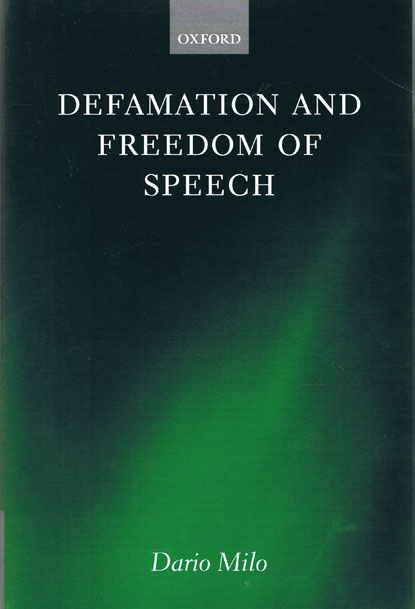
The law of defamation contemplates the clash of two fundamental rights: the right to freedom of expression, including freedom of the media, and the right to reputation. The rules of defamation law are designed to mediate between these two rights.
The central proposition that this book makes is that defamation law needs to be reformed to balance the conflicting rights. This discussion flows from a theoretical analysis of the rights in issue; the value underlying the right to reputation that has most resonance is human dignity, while the value that is most apposite to freedom of expression in this context is the argument that free speech is integral to democracy. The argument from democracy emphasizes that speech on matters of public interest should receive greater protection than private speech.
This book argues that fundamental rules of defamation law need to be reformed to take into account the dual importance of public interest speech on the one hand, and the right to human dignity on the other. In particular, the presumptions that defamatory allegations are false and have caused damage, the principle of strict liability to primary publishers and negligence liability to secondary publishers, and the availability of punitive damages, should not survive constitutional scrutiny.
The quantum of damages and costs rules, and the remedies available in defamation cases, should also be reformed to reflect the importance of dignity to the claimant, and the free speech interest of the public in receiving accurate information on matters of public interest.